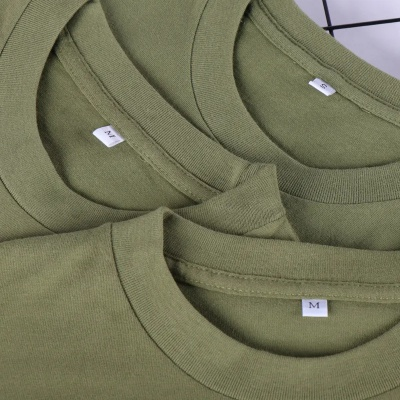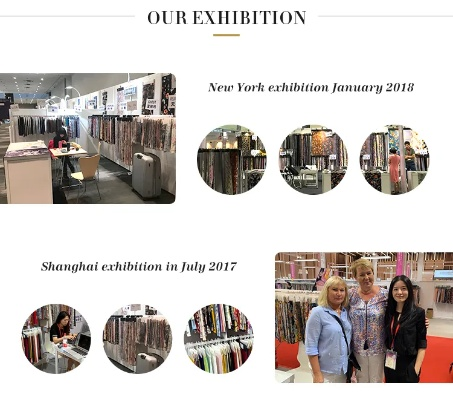Jiangsu Green Textile Standards:A Path to Sustainable Fashion
Jiangsu Green Textile Standards, a pioneering effort to promote sustainable fashion, aims to revolutionize the industry by implementing stringent environmentally-friendly guidelines. These standards are designed to reduce water and energy consumption, minimize waste, and ensure that textile products are made from sustainable and biodegradable materials. By doing so, they seek to protect natural habitats, prevent pollution, and create a circular economy where waste is recycled and reused. The adoption of these green standards is expected to boost the reputation of Jiangsu's textile sector, attracting more eco-conscious consumers who prioritize sustainability. As such, Jiangsu Green Textile Standards not only benefit the environment but also contribute to the growth of the local fashion industry and its ability to innovate and thrive in an increasingly competitive global market.
Introduction: The fabric of our future is being woven with sustainable threads, and Jiangsu Province is at the forefront of this revolution. The province has established a comprehensive set of green textile standards that aim to promote the use of eco-friendly materials, reduce waste, and enhance the overall environmental impact of textile production. This initiative not only benefits the environment but also contributes to the economic growth and social welfare by creating jobs in green manufacturing sectors. In this guide, we will dive into the details behind these standards and highlight how they are shaping the fashion industry.
Green Textile Standards: Definition and Scope Jiangsu's green textile standards define textile products as those made from natural fibers or synthetic fibers that are certified to be environmentally friendly and biodegradable. These standards cover various aspects such as raw material sourcing, production processes, packaging, and transportation. They aim to ensure that textile products meet certain criteria, such as using renewable resources, minimizing water and energy consumption, minimizing pollution, and reducing the carbon footprint of their supply chain.

Renewable Raw Materials: Choosing Eco-Certified Fibers One of the key pillars of Jiangsu's green textile standards is ensuring that all raw materials used are sourced sustainably. This includes promoting the use of plant-based materials like hemp, organic cotton, and bamboo. For instance, the Hemp Fiber Standard specifies that any hemp product must be produced using 100% hemp fibers and comply with specific testing protocols to confirm its content and quality.
Energy Efficiency: Cutting Down on Water and Energy Another critical aspect is the efficiency of production processes. The Textile Production Process Standards require textile manufacturers to adopt energy-efficient technologies and practices. This includes using renewable energy sources, reducing water usage, and implementing waste management strategies. For example, a textile manufacturer in Jiangsu could use solar panels to power their facility during peak hours and capture rainwater for irrigation purposes.
Waste Management: Recycling and Reuse Reducing waste is another key component of the Jiangsu green textile standards. Compliance with these standards mandates the use of recycled materials in textile products and strict regulations on waste disposal. For instance, the Textile Waste Management Standards require textile manufacturers to sort and process their waste properly to prevent pollution and create new products from recycled materials.
Transportation: Minimizing CO2 Emissions Finally, the transportation phase also plays a crucial role in the sustainability of textiles. The Textile Product Transportation Standards aim to minimize CO2 emissions by encouraging the use of low emission vehicles and promoting efficient logistics systems. For example, a textile company in Jiangsu can opt for electric trucks for transportation purposes and optimize their shipping routes to minimize fuel consumption.
Case Study: The Rise of Eco-Textiles in Jiangsu In recent years, Jiangsu has seen a significant increase in the adoption of eco-textiles. A leading local textile manufacturer, XYZ Textiles, has embraced the principles laid out in the Jiangsu green textile standards and transformed itself into an eco-friendly enterprise. XYZ Textiles uses exclusively recycled polyester fibers derived from plastic bottles, reducing its carbon footprint significantly. Additionally, they have implemented energy-efficient machinery and water-saving technologies, which have significantly cut down on operational costs while maintaining high quality standards.
Conclusion: Jiangsu's green textile standards are not just regulatory requirements; they are a strategic investment in the long-term health of the fashion industry and our planet. By aligning their operations with these standards, businesses in Jiangsu can not only reduce their ecological footprint but also differentiate themselves from competitors and attract consumers who seek out ethical and sustainable products. As more industries worldwide adopt similar green standards, it is clear that investing in eco-friendly practices is not just a choice but an imperative for the future success of fashion.
随着环保意识的日益增强,绿色、环保、可持续的纺织品已成为全球纺织行业发展的趋势,江苏作为我国重要的纺织大省,为了推动绿色针纺织品行业的健康发展,制定了一系列规范,本文将详细介绍江苏绿色针纺织品规范的主要内容,并结合案例说明进行深入解读。
江苏绿色针纺织品规范概述
定义与背景
江苏绿色针纺织品规范旨在规范针纺织品生产过程中的环保标准,确保产品符合国家环保法规和行业标准,该规范适用于江苏地区所有针纺织品生产企业,旨在提高产品质量,保护生态环境,促进可持续发展。
(1)原材料选择与控制:规范要求选用环保、无污染的原材料,禁止使用有害物质超标的原材料。
(2)生产过程控制:规范要求严格控制生产过程中的污染排放,采用清洁生产技术,减少生产过程中的废弃物和污染物排放。

(3)产品质量标准:规范要求产品必须符合国家相关标准,包括纤维含量、色牢度、异味等指标。
(4)包装材料与回收利用:规范要求使用可降解、可回收的包装材料,鼓励企业进行包装材料的回收利用。
案例说明
以某知名针纺织品企业为例,该企业在江苏省内成功实施了绿色针纺织品规范,取得了显著成效,该企业在原材料采购上严格把关,优先选择环保、无污染的原材料;在生产过程中采用清洁生产技术,减少废弃物和污染物排放;该企业注重产品质量标准,严格控制各项指标;该企业还积极推广使用可降解、可回收的包装材料,鼓励员工进行包装材料的回收利用,通过这些措施的实施,该企业成功提高了产品质量,降低了生产成本,同时也为环境保护做出了积极贡献。
实施绿色针纺织品规范的意义与价值
实施绿色针纺织品规范对于推动纺织行业绿色发展具有重要意义与价值,它可以提高产品的环保性能和品质,满足消费者对绿色、环保、可持续产品的需求,它可以促进企业的可持续发展,降低生产成本,提高企业的市场竞争力,它可以推动纺织行业的科技创新和产业升级,促进纺织行业的可持续发展。
建议与展望
为了进一步推动江苏绿色针纺织品行业的健康发展,我们提出以下建议:
-
加强政策引导和监管力度,鼓励企业积极实施绿色针纺织品规范。
-
加大技术研发和人才培养力度,推动纺织行业的科技创新和产业升级。
-
加强国际合作与交流,引进先进的技术和经验,提高江苏绿色针纺织品行业的整体水平。
展望未来,随着环保意识的不断增强和政策的支持力度不断加大,江苏绿色针纺织品行业将迎来更加广阔的发展前景,随着技术的不断进步和产业的不断升级,江苏绿色针纺织品行业将更加注重产品的环保性能和品质,更加注重企业的可持续发展和社会责任。
Articles related to the knowledge points of this article:
The Art of Textile Blending in the Enchanting阁布世界
The Story of Ethical Textiles from Chongxian Brands
Exploring the World of Jilin Textiles:An Unmissable Journey
The Mystery of Textile Waste:A Case Study on Distracting Yarn



